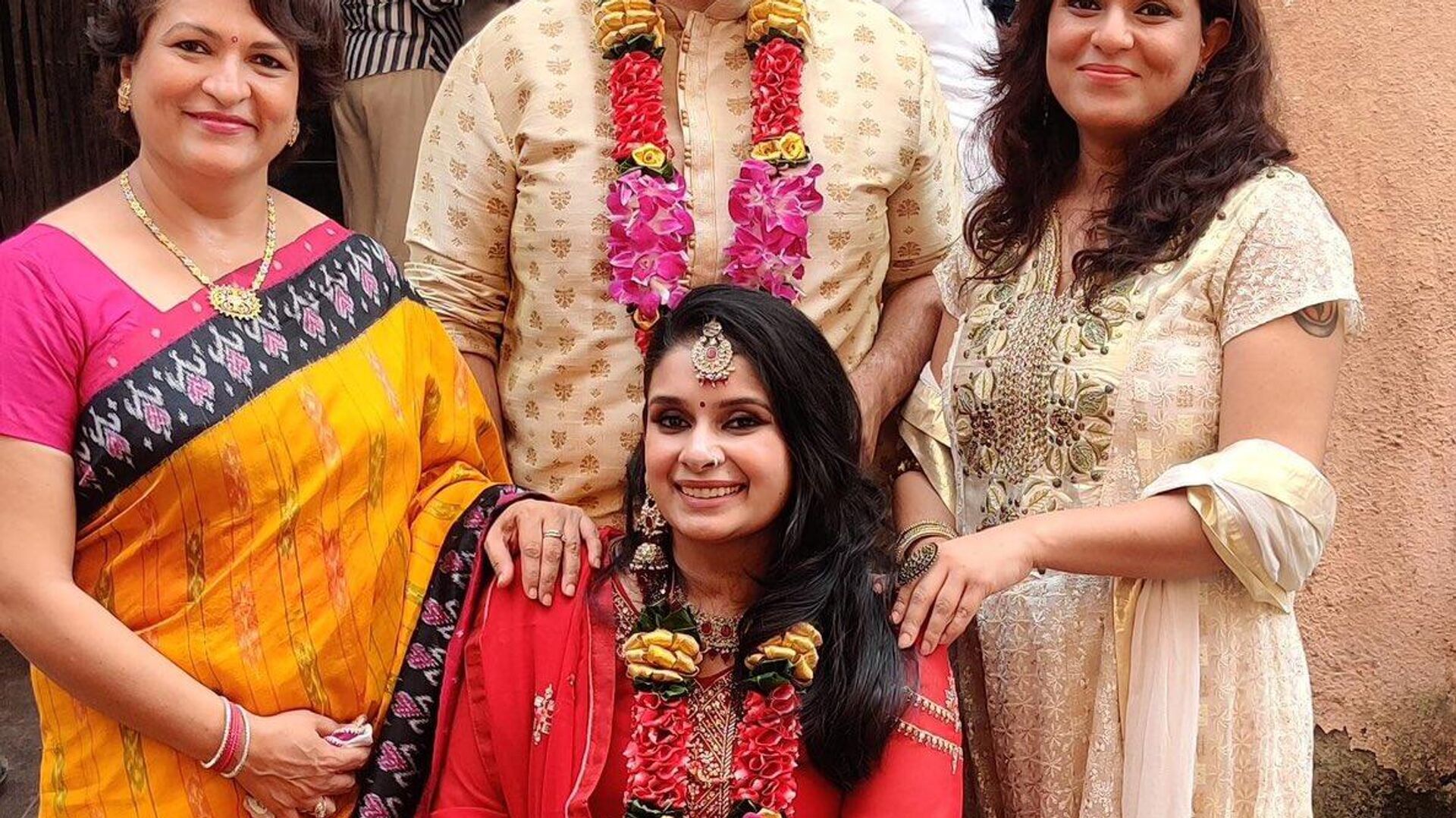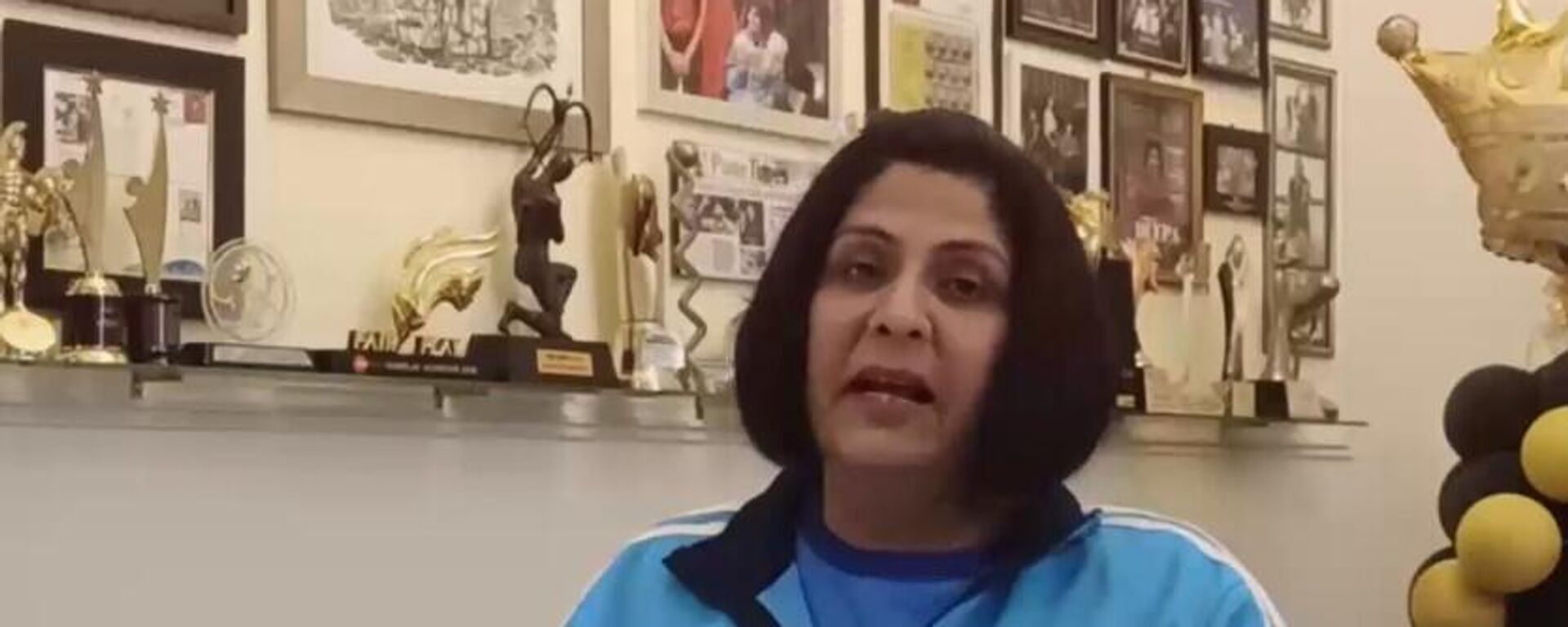https://sputniknews.in/20231219/indias-first-wheelchair-using-model-stresses-significance-of-inclusion-for-disabled-5877525.html
India's First Wheelchair-Using Model Stresses Significance of Inclusion for Disabled
India's First Wheelchair-Using Model Stresses Significance of Inclusion for Disabled
Sputnik India
India's first wheelchair-using model Virali Modi spoke to Sputnik India about her journey, challenges, disability rights and other issues.
2023-12-19T20:26+0530
2023-12-19T20:26+0530
2023-12-19T20:26+0530
sputnik exclusives
india
delhi
new delhi
persons with disabilities
human rights
https://cdn1.img.sputniknews.in/img/07e7/0c/13/5895137_0:440:1186:1107_1920x0_80_0_0_7539d3a1d39a60918a9cef0e0cbaf9bb.jpg
Nearly 26.8 million people, or 2.2 per cent of India's population, live with some form of physical or mental disability, according to the 2011 census.While Prime Minister Narendra Modi has coined the term "specially abled" for people with disabilities, there is still a need to change the mindset of people who see them as different and inferior.Several initiatives have been taken by the government and social organisations to promote the rights of people with disabilities.Sputnik India caught up with Virali Modi, India's first wheelchair-bound model, to talk about discrimination against people with disabilities, rights for the disabled, her journey as a model, the challenges she faced and how things have changed for the disabled in India today.Tackling DiscriminationsTalking about discrimination, Modi said that the first mistake people make is to think that people with disabilities are not normal, they are normal, so it's just the mindset of society.The second and third approaches are related, said the country's first wheelchair-using model, as she noted that even today, not many students with disabilities are seen studying in the same classroom as able-bodied students, which shows a lack of integration within society.“If there is lack of integration, the mindset of the people can’t be broadened. In order to integrate disabled people with the society it is important for them to hang around and be more visible. As of now, we are lacking behind in all the three steps. Therefore, if discrimination has to be ended then we will have to integrated disabled people within society,” Modi said.No Demand of Different RightsSharing her thoughts on the rights of disabled people, the model said that it's never been about demanding different rights, it's been about equality.Meanwhile, talking about the factors that have brought about change for people with disabilities, she said that it is mainly because of social media that people are becoming aware of the nature of the discrepancies."Now people are leading more to learn about DEI - Diversity, Equity and Inclusion and because of that awareness is being spread, people are becoming a little bit more inclusive and because of that visibility has increased," Modi said, citing the example of para-athletes who recently performed phenomenally at the Asian Para Games held in October.Rejection Motivated Modi to ExcelSharing her journey as the first Indian model to use a wheelchair and the challenges she faced, she said the biggest challenge she faced was being constantly put down and body shamed because her body looked different from other models as she used to look fat while sitting in a wheelchair."I faced discrimination and rejection, but it only motivated me. I was determined that people with disabilities need some kind of representation, so I overcame such challenges with my willpower and the support of my family," Modi said.The model said that she never cared what people said because for her it was very small part of her journey. “I have been a very positive person. If someone says that I can’t do a particular thing, I am like I will show you that I can,” Modi stated.She also suggested that instead of sad and depressing films about disabled people, there should be films that motivate them.Sharing her views on the changes over the years for disabled people in India, she said that there have been several changes like travelling has become much easier for people with disabilities and the number of people coming together for the rights of disabled people has increased.She also highlighted that many places that were inaccessible 10 years ago are now accessible, but reiterated that the infrastructure for disabled people and their inclusion still needs to move fast.
https://sputniknews.in/20231101/value--love-at-national-level-inspire-para-athletes-pci-chief-deepa-malik-5179750.html
india
delhi
new delhi
Sputnik India
feedback.hindi@sputniknews.com
+74956456601
MIA „Rossiya Segodnya“
2023
Rahul Trivedi
https://cdn1.img.sputniknews.in/img/07e6/0c/13/136500_0:0:628:627_100x100_80_0_0_72097ff894c7446b70d2efafcb719720.jpg
Rahul Trivedi
https://cdn1.img.sputniknews.in/img/07e6/0c/13/136500_0:0:628:627_100x100_80_0_0_72097ff894c7446b70d2efafcb719720.jpg
News
en_IN
Sputnik India
feedback.hindi@sputniknews.com
+74956456601
MIA „Rossiya Segodnya“
Sputnik India
feedback.hindi@sputniknews.com
+74956456601
MIA „Rossiya Segodnya“
Rahul Trivedi
https://cdn1.img.sputniknews.in/img/07e6/0c/13/136500_0:0:628:627_100x100_80_0_0_72097ff894c7446b70d2efafcb719720.jpg
virali modi, india's first wheelchair using model, rights for disabled people, prime minister narendra modi, specially-abled people, asian para games, infrastructure for disabled people
virali modi, india's first wheelchair using model, rights for disabled people, prime minister narendra modi, specially-abled people, asian para games, infrastructure for disabled people
India's First Wheelchair-Using Model Stresses Significance of Inclusion for Disabled
India's first wheelchair-using model Virali Modi spoke to Sputnik India about her journey, challenges, disability rights and other issues.
Nearly 26.8 million people, or 2.2 per cent of India's population, live with some form of physical or mental disability, according to the 2011 census.
While Prime Minister Narendra Modi has coined the term "specially abled" for people with disabilities, there is still a need to change the mindset of people who see them as different and inferior.
Several initiatives have been taken by the government and
social organisations to promote the rights of people with disabilities.
Sputnik India caught up with Virali Modi, India's first wheelchair-bound model, to talk about discrimination against people with disabilities, rights for the disabled, her journey as a model, the challenges she faced and how things have changed for the disabled in India today.
Talking about discrimination, Modi said that the first mistake people make is to think that people with disabilities are not normal, they are normal, so it's just the mindset of society.
“In order to end the discrimination there should be a three-pronged approach which includes government, education and integration within the society. When we talk about government’s approach, there are schemes and campaigns for people with disabilities and changes are visible but the implementation of the schemes is not fast paced as it should have been,” she stated.
The second and third approaches are related, said the country's first wheelchair-using model, as she noted that even today, not many students with disabilities are seen studying in the same classroom as able-bodied students, which shows a lack of integration within society.
“If there is lack of integration, the mindset of the people can’t be broadened. In order to integrate disabled people with the society it is important for them to hang around and be more visible. As of now, we are lacking behind in all the three steps. Therefore, if discrimination has to be ended then we will have to integrated disabled people within society,” Modi said.
No Demand of Different Rights
Sharing her thoughts on the rights of disabled people, the model said that it's never been about demanding different rights, it's been about equality.
“If you have the right to board a train and go anywhere within your means then someone who has a disability should also have that right. However, that right is stemmed down to accessibility and infrastructure. So when there is infrastructure supporting you, supporting the kind of help that you would need that's when you know the rights of people with disabilities are there,” Modi explained.
Meanwhile, talking about the factors that have brought about change for people with disabilities, she said that it is mainly because of social media that people are becoming aware of the nature of the discrepancies.
"Now people are leading more to learn about DEI - Diversity, Equity and Inclusion and because of that awareness is being spread, people are becoming a little bit more inclusive and because of that visibility has increased," Modi said, citing the example of para-athletes who recently performed phenomenally at the
Asian Para Games held in October.
Rejection Motivated Modi to Excel
Sharing her journey as the first Indian model to use a wheelchair and the challenges she faced, she said the biggest challenge she faced was being constantly put down and body shamed because her body looked different from other models as she used to look fat while sitting in a wheelchair.
"I faced discrimination and rejection, but it only motivated me. I was determined that people with disabilities need some kind of representation, so I overcame such challenges with my willpower and the support of my family," Modi said.
The model said that she never cared what people said because for her it was very small part of her journey. “I have been a very positive person. If someone says that I can’t do a particular thing, I am like I will show you that I can,” Modi stated.
She also suggested that instead of sad and depressing films about disabled people, there should be films that motivate them.
Sharing her views on the changes over the years for disabled people in India, she said that there have been several changes like travelling has become much easier for people with disabilities and the number of people coming together for the rights of disabled people has increased.
"People are just coming together for a good cause, creating awareness and talking about the issue. As I said earlier, social media has been instrumental in bringing about a lot of these changes because it has enabled us to communicate with our ministers and lawmakers," Modi said.
She also highlighted that many places that were inaccessible 10 years ago are now accessible, but reiterated that the infrastructure for disabled people and their inclusion still needs to move fast.



